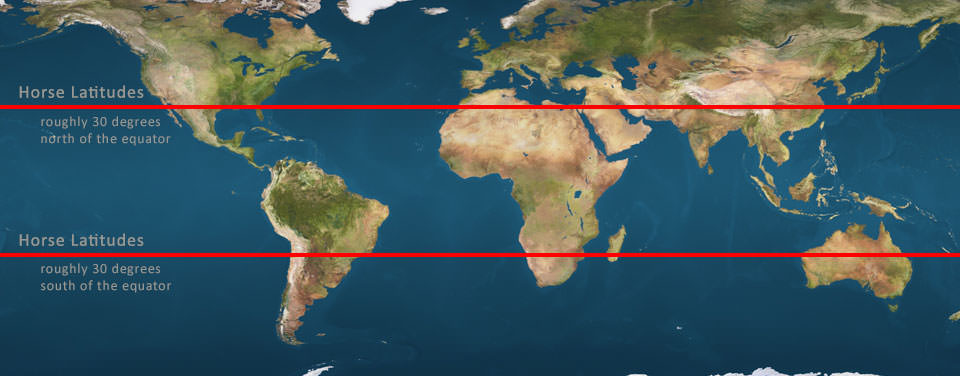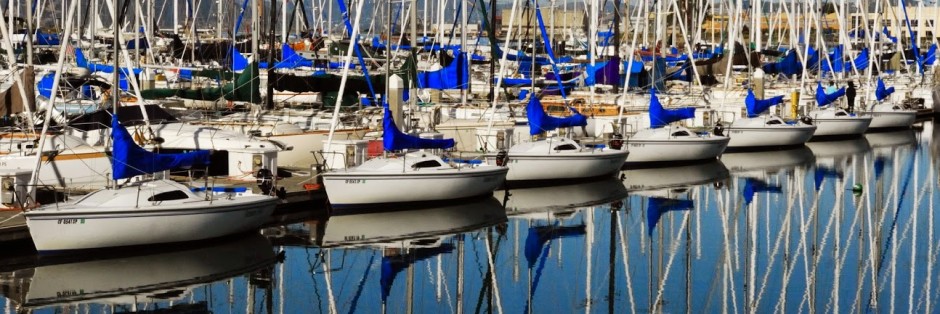
In 1967 The Doors released their second album, Strange Days, which included a creepy song called Horse Latitudes. The song alludes to live horses being “jettisoned” from ships and suffering in “mute nostril agony,” presumably to lighten the load or because provisions have run too low to sustain them. Composer Jim Morrison based the song on seemingly solid nautical sources; the phrase is explained similarly by W. H. Smyth in his 1867 lexicon, in reference to the Azores High. There’s no doubt that the calms associated with this high prolonged the voyage for many ships heading to the New World and that the trip was dangerous. The mortality rate for humans could range to 30%. Still, many authorities question this interpretation of the phrase for the following reasons:
1) The Azores High is much closer to Europe than the equatorial calms, making the Doldrums an even more likely area for cargo to be thrown overboard. Why do we not locate the practice there?
2) A ship’s consignment was documented in the manifest. Horses were not incidental items that could be glossed over when they failed to materialize at their destination, but highly valued ones. Their absence would have required a thorough accounting to the ship’s insurers from the captain, who took responsibility for their safe transport. Yet as far as I can determine, no record of an insurance claim for this type of loss has been documented, while we have records of other losses due to storms.
3) Horses were not the only animals transported. Cows, pigs, chickens, goats, sheep, and oxen were also among the animals needed to be supplied to America, which lacked them. Why are only horses singled out in this phrase?
4) Even if the ship’s water stores needed to be rationed, there remained the potential for rain, which could come at any time. Why jettison live animals, while there was still hope that they could be revived with fresh water from a rainstorm?
5) However unappealing it may be to modern Americans, horsemeat is still consumed in Europe and would have been much better fare than the salted, often rotten meat which was commonly provided. With supplies running low, would the captain order this important food source thrown overboard?
As common as Morrison’s interpretation of this phrase is, logic cries out for another explanation. We’ll see if we can come up with one next time.
